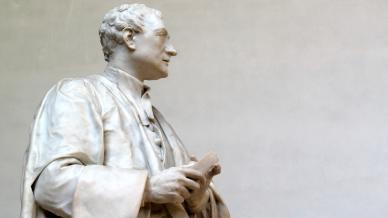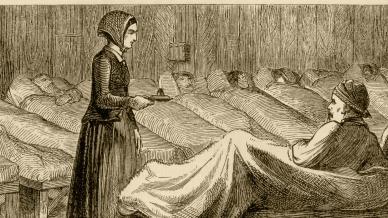Peter started by looking at Pnyx Hil, the Assembly, which was the meeting place for male Athenians. Our equivalent would be the Houses of Parliament and there are many similarities. They are both places where the issues of the day are discussed, directions debated and voted through and laws are laid down.
However, there are also many differences. Here’s just a few:
Local versus national
In the classical period, the Assembly purely discussed matters local to the city, rather than the entire nation. Warfare was endemic between the highly competitive cities, so that a national view was just not available. Each city decided its laws.
Who can vote
The principle of the people, ‘demos’, having power, ‘kratos’, in classical Athens reflected more on ‘average’ Athenians having a voice alongside the aristocracy: it was certainly not egalitarian. Only men had the right to a voice, so long as they weren’t a slave, and only if they had both an Athenian mother and father.
Whilst it took a fair amount of time to achieve, people of all genders and backgrounds are able to vote in the UK. We take a broader view in that we allow all people who have rights to residency in the UK to vote, whether they currently live here (within 15 years) or their parents were born here.
Direct versus representative
That said, any male citizen (within the above criteria admittedly) could speak at the Assembly, or potentially had the right to take up a seat in the Council (Boule) which set its agenda. On the other hand, in the UK, we have a ‘representative’ form of democracy where we elect an MP to raise our concerns and to speak on our behalf.
Perhaps representation forms an essential part of a functioning national scheme, but does it limit our ability to raise some issues? Many would argue that, should our MP not listen to our concerns, the right to raise an issue via popular petition is an important fail-safe.
Selection of officials, jurors and generals
In classical Athens, the selection of who would fill positions of officials and jurors was decided by lottery. Each willing participant would place their name in the lottery, with one lucky person pulled out to fill the role – ignoring experience or aptitude. The selection of financial officers and military generals was decided by vote at the Assembly. A clear line of separation is firmly in place between the UK government and recruitment for such posts and, having recently observed the election to the Supreme Court in America, many might say anew, we need to keep it that way.
Stability of the law
It wasn’t just because laws were quite literally ‘written in stone’ that democracy was so successful in Athens. There were many different limitations to changing laws.
In 2021, as the UK nation governments legislate on a weekly basis in response to coronavirus, we have begun to see a new, faster, more flexible system of law come into place. Will that continue into the future? How will that affect our democracy? It will be interesting to see.
That said, the sanctity of the law is still highly valued, and the formal process remains rigorous with, for example, numerous readings both in the House of Parliament and the House of Lords to pass a UK-wide law.
Change still to come
It might be argued that more dynamic, representative change should have been achieved over two thousand years, but big shifts have taken place even in the last ten years. Our MPs no longer come pretty exclusively from those who have had the privilege of private school education. And, the faces we see are beginning to look more like the diversity of religions, races and gender preferences we see within the British populous.
So, if there’s more to be done. What change would you still like to see? Or would you rather go back to some of the benefits of the classical Athenian approach?















